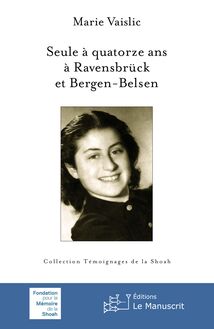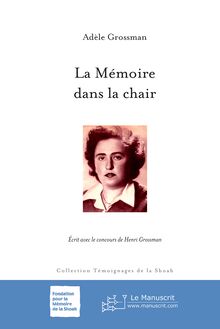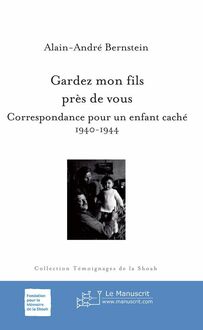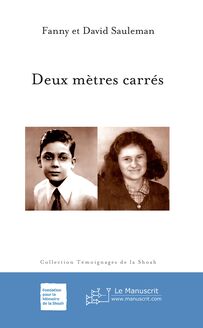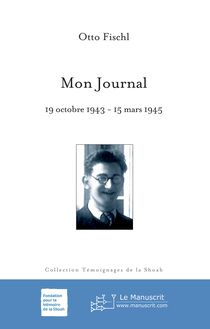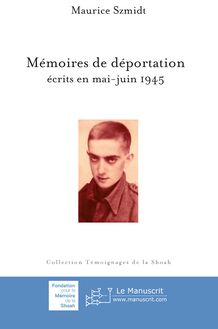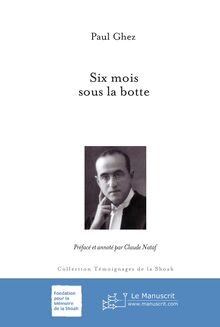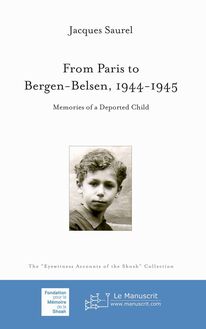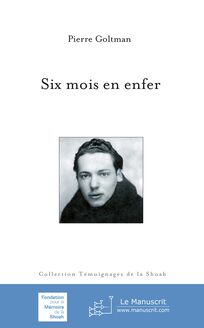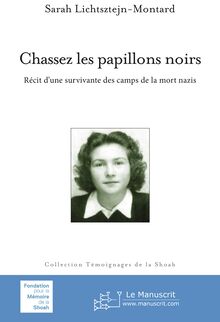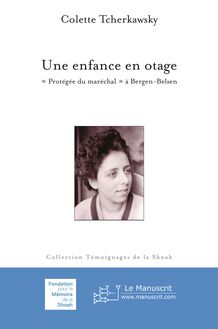-
 Univers
Univers
-
 Ebooks
Ebooks
-
 Livres audio
Livres audio
-
 Presse
Presse
-
 Podcasts
Podcasts
-
 BD
BD
-
 Documents
Documents
-
- Cours
- Révisions
- Ressources pédagogiques
- Sciences de l’éducation
- Manuels scolaires
- Langues
- Travaux de classe
- Annales de BEP
- Etudes supérieures
- Maternelle et primaire
- Fiches de lecture
- Orientation scolaire
- Méthodologie
- Corrigés de devoir
- Annales d’examens et concours
- Annales du bac
- Annales du brevet
- Rapports de stage
La lecture à portée de main
Vous pourrez modifier la taille du texte de cet ouvrage
Découvre YouScribe en t'inscrivant gratuitement
Je m'inscrisDécouvre YouScribe en t'inscrivant gratuitement
Je m'inscrisEn savoir plus
Vous pourrez modifier la taille du texte de cet ouvrage
En savoir plus

Description
Sujets
Informations
| Publié par | Éditions Le Manuscrit |
| Date de parution | 01 janvier 2020 |
| Nombre de lectures | 4 |
| EAN13 | 9782304004236 |
| Langue | English |
Informations légales : prix de location à la page 0,0250€. Cette information est donnée uniquement à titre indicatif conformément à la législation en vigueur.
Extrait
Simone Veil President of the Fondation pour la Mémoire de la Shoah
Speeches 2002-2007
Preface by Anne-Marie Revcolevschi
The ‘Testimonies of the Shoah’ Collection
Le Manuscrit
ISBN: 9782304004236
© 2019 Le Manuscrit
Simone Veil
Translated by: Yosef Pilch, Natasha Lehrer, Jessica Alexander, Linda Macrae, John Harrold , Catherine McMillan.
Proofreading & coordination of the English translation: Ellen Booker .
Introduc tion to the Fondation de la Mémoire de la Shoah’s ‘Testimonies of the Shoah’ Collection
With the launch of its collection ‘Testimonies of the Shoah’ together with Le Manuscrit, and thanks to new communication technologies, the Foundation hopes to conserve the memories of the victims and witnesses to the black years of anti-Semitic persecution, from 1933 to 1945, and pass them on to a wider audience.
In addition to the numerous works already in circulation, the Foundation hopes to here add the stories of those whose voices have remained, to date, without echo: memories often buried deep within individuals or families; stories written down but never made public; testimonies published after emerging from the inferno of the camps, but too long absent from library bookshelves...
If one person alone cannot describe the unspeakable, the multiplicity of stories may at least come close.
Regardless, this is the purpose of the present collection to which the Foundation, thanks to its Review Board of both historians and witnesses, lends its historical and moral support.
Faced with current events where the manipulation of various conflicts tends to mask, confuse, and trivialise the history of the Shoah, this collection will allow readers, researchers, and students alike to assess the distinctive character of the Shoah: an extreme case of persecution in which some were actors, others accomplices, and confronted with which some remained indifferent while others proved themselves heroic.
May these works inspire their readers to reject anti-Semitism and all forms of marginalisation, and to embrace a spirit of brotherhood.
www.fondationshoah.org
Review Board for the Collection
President: Serge Klarsfeld
Members: Isabelle Choko, Olivier Coquard, Gérard Gobitz,
Katy Hazan (OSE), Dominique Missika,
Denis Peschanski, Paul Schaffer
Editor: Philippe Weyl
In the same collection:
Murmures d ’ enfants dans la nuit by Rachel Chetrit- Benaudis.
Auschwitz, le 16 mars 1945 by Alex Mayer.
Dernière Porte suivi de 50 ans après, une journée à Auschwitz
by Claude Zlotzisty.
À la vie ! Les enfants de Buchenwald, du shtetl à l ’ OSE
by Katy Hazan and Éric Ghozlan.
J ’ ai eu douze ans à Bergen-Belsen by Albert Bigielman.
Matricule A-16689. Souvenirs de déportation d ’ un enfant de treize ans
(mai 1944 - mai 1945) by Claude Hirsch.
Jamais je n ’ aurai quatorze ans by François Lecomte.
Sali by Salomon Malmed.
Journal d ’ un interné. Compiègne, Drancy, Pithiviers. 12 décembre 1941 – 23 septembre 1942. Journal (volume I), Souvenirs et lettres (volume II)
by Benjamin Schatzman.
Trois mois dura notre bonheur. Mémoires 1943-1944 by Jacques Salon.
Vies interdites by Mireille Boccara.
Retour d ’ Auschwitz. Souvenirs du déporté 174949 by Guy Kohen.
Le Camp de la mort lente, Compiègne 1941-1942 by Jean-Jacques Bernard.
Mille jours de la vie d ’ un déporté qui a eu de la chance by Théodore Woda.
Évadée du Vél ’ d ’ Hiv ’ by Anna Traube.
Journal de route, 14 mars-9 mai 1945 by Jean Oppenheimer.
Mes vingt ans à l’OSE, 1941-1961 by Jenny Masour-Ratner.
J’avais promis à ma mère de revenir by Moniek Baumzecer.
Aux frontières de l’espoir by Georges Loinger.
De Drancy à Bergen-Belsen 1944-1945. Souvenirs rassemblés d’un enfant déporté
by Jacques Saurel.
Entre les mots by Thérèse Malachy-Krol.
Le Sang et l’Or by Julien Unger.
C’est leur histoire, 1939-1943 by André-Lilian Mossé et Réjane Mossé.
Discours 2002-2007 by Simone Veil.
Sans droit à la vie by Simon Grunwald.
Combats de vies by Éliezer Lewinsohn.
Étoile jaune et croix gammée by Robert Borgel.
Biography of Madame Simone Veil
Born in 1927 in Nice, France, Simone Veil undertook her secondary studies at a local high school and completed her baccalauréat in March 1944, the day before her arrest. On April 13, 1944, she was deported to Auschwitz-Birkenau, then on to Bergen-Belsen with her sister and her mother who died there in March 1945, a month before the camp’s liberation.
Upon her return to France, she studied law and political science in Paris. In 1957 she was assigned to the Ministry of Justice, and later named Secretary of the Conseil supérieur de la magistrature (High Judiciary Council).
From 1974 to 1979, she held the position of Minister of Health and Social Affairs, nominated to the position by President of the French Republic, Valéry Giscard d’Estaing.
In 1979, she headed a list for the elections of the European Parliament by universal suffrage, to which she was elected president until 1982. She held a seat as a Member of the European Parliament until 1993.
Between 1983 and 1986, she was a member of the International Commission on Human Rights sponsored by the United Nations.
From 1991 to 1992, she led the independent commission tasked by the World Health Organisation to develop a report on ‘health, the environment, and sustainable development’ in preparation for its presentation to the Earth Summit in Rio de Janeiro (Brazil) in June 1992.
She was then a member of the Independent Commission on the Balkans. (Aspen Institute Berlin–Carnegie Endowment for International Peace).
In 1993, she was named Minister of State for Social Affairs, Health, and Municipalities of the French Republic.
From February 1998 to March 2007, she was a member of the Constitution Council. She was elected president of the Fondation pour la Mémoire de la Shoah in 2001, a position she held until February 2007. Today she is honourary president of the Foundation.
Since 2002 she has also presided over the Trust Fund for Victims, operating alongside the International Criminal Court of The Hague.
Madame Simone Veil has received numerous prestigious honours.
Preface
Simone Veil has spoken on very different stages and subjects, and before extremely diverse audiences. The speeches collected here represent only a fraction of her public dialogues: those given over the last six years in her capacity as president of the Fondation pour la Mémoire de la Shoah.
Having written those last words, I must immediately correct myself: when our president discusses the Shoah, she is firstly and always Madame Veil, the Auschwitz survivor, matured and enriched by her French and international political experience, who speaks from the heart about her own memory and her own thoughts.
Alone, the typed pages of these speeches doubtless lack her gaze, her gravitas, and the singular tone of her stories, which always pierce her listeners. And yet, I’m convinced that these words laid down as text will lose nothing of their depth or authenticity. I do not doubt that the reader will hear them, reflect upon them, and, I hope, be inspired by them.
In all her speeches, what is most striking is her thematic persistence, alongside variety that explains her ability to use her knowledge of her audience’s particular history to adapt herself to them; in short, her diligence to take into account the general context of France, Europe, and the world today.
This persistence asserts itself first in the recounting of facts. A testimony unchanged by memory. Because the experience of the Shoah left an incurable wound; because, for Simone Veil, the will to recount the crime committed has always been an obligation and an obsession that honours the memory of the murdered and these ghosts, reduced to a pile of bones and only a breath of life, who wished for nothing more before death than our loyalty to their memory . It is not surprising, then, to find in all her speeches the story of what she endured and never forgot: the terrifying arrival at Auschwitz after arrest in Nice, consignment on the Judenrampe and the luck to be in the right queue with her mother and sister; but also the camp, the friendships, the unbroken stream of Hungarian convoys, the Gypsies, the pointless excavation work, the factory at Bobrek where life was ‘easier’, the terrible death marches, Bergen-Belsen, her mother’s death just before the arrival of the English...and the return home.
She retains a painful scar: the incomprehension of the unscathed world whose nonsensical questions –when any were asked– finally led her to silence along with most of the other survivors. When there were words to be said, they were said to oneself or between those who, like her, had returned from purgatory. It was an incomprehension that first revolted her, then silenced her, and which, after sixty years, she managed to bear: How could they actually understand? Who could ever understand what we endured? Over the years, however, she is reassured b
-
 Univers
Univers
-
 Ebooks
Ebooks
-
 Livres audio
Livres audio
-
 Presse
Presse
-
 Podcasts
Podcasts
-
 BD
BD
-
 Documents
Documents
-
Jeunesse
-
Littérature
-
Ressources professionnelles
-
Santé et bien-être
-
Savoirs
-
Education
-
Loisirs et hobbies
-
Art, musique et cinéma
-
Actualité et débat de société
-
Jeunesse
-
Littérature
-
Ressources professionnelles
-
Santé et bien-être
-
Savoirs
-
Education
-
Loisirs et hobbies
-
Art, musique et cinéma
-
Actualité et débat de société
-
Actualités
-
Lifestyle
-
Presse jeunesse
-
Presse professionnelle
-
Pratique
-
Presse sportive
-
Presse internationale
-
Culture & Médias
-
Action et Aventures
-
Science-fiction et Fantasy
-
Société
-
Jeunesse
-
Littérature
-
Ressources professionnelles
-
Santé et bien-être
-
Savoirs
-
Education
-
Loisirs et hobbies
-
Art, musique et cinéma
-
Actualité et débat de société
- Cours
- Révisions
- Ressources pédagogiques
- Sciences de l’éducation
- Manuels scolaires
- Langues
- Travaux de classe
- Annales de BEP
- Etudes supérieures
- Maternelle et primaire
- Fiches de lecture
- Orientation scolaire
- Méthodologie
- Corrigés de devoir
- Annales d’examens et concours
- Annales du bac
- Annales du brevet
- Rapports de stage
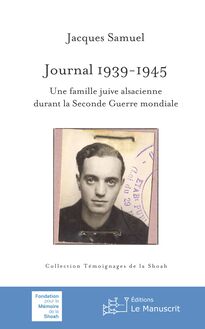
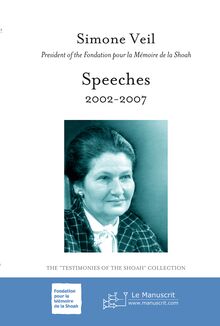
![[En]quête de famille](https://img.uscri.be/pth/2d18ccf0814431f0b2cebbf9d26faf0e9ab5ea36)
